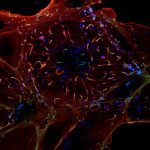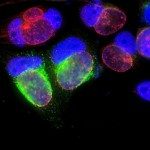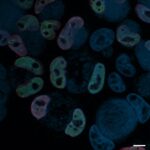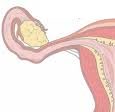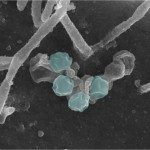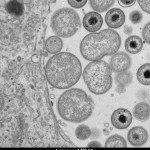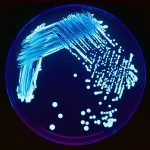Nos travaux cherchent à comprendre les propriétés fonctionnelles des cellules eucaryotes, et comment celles-ci sont perturbées lors d’une infection bactérienne. Nous étudions en particulier les mécanismes d’entrée et de développement d’une bactérie intracellulaire obligatoire, Chlamydia.
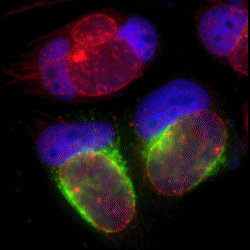 Les espèces de chlamydiae pathogènes pour l’homme, principalement Chlamydia trachomatis et Chlamydia pneumoniae, sont responsable de maladies diverses, en particulier le trachome et des inflammations pelviennes (C. trachomatis), et des pneumonies (C. pneumoniae). Les infections primaires sont souvent asymptomatiques, et les conséquences peuvent apparaitre longtemps après l’infection. En particulier, chez une minorité d’individus, l’infection à C. trachomatis peut entraîner une stérilité chez la femme, ou une grossesse extra-utérine.
Les espèces de chlamydiae pathogènes pour l’homme, principalement Chlamydia trachomatis et Chlamydia pneumoniae, sont responsable de maladies diverses, en particulier le trachome et des inflammations pelviennes (C. trachomatis), et des pneumonies (C. pneumoniae). Les infections primaires sont souvent asymptomatiques, et les conséquences peuvent apparaitre longtemps après l’infection. En particulier, chez une minorité d’individus, l’infection à C. trachomatis peut entraîner une stérilité chez la femme, ou une grossesse extra-utérine.
Tout au long de leur développement intracellulaire les Chlamydia résident dans un compartiment délimité par une membrane appelé inclusion. Nous étudions les interactions entre les bactéries et leur cellule hôte au cours de l’infection. Nous privilégions en particulier l’étude fonctionnelle de protéines sécrétées par les bactéries dans le cytoplasme de l’hôte par un procédé appelé sécrétion de type 3.


